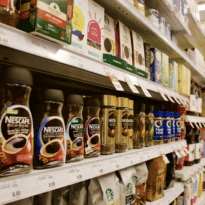When the furlough scheme winds to a close, sectors across the UK equity market face “capital destruction”, Smith & Williamson Investment Management’s Enterprise Fund team has warned.
The furlough scheme* has protected a number of businesses over the course of the pandemic, with 9.6 million workers placed on the government scheme, including many in the retail and leisure industries. However, as the scheme is wound up, Smith & Williamson Enterprise Fund said many businesses will not be able to return to trade as normal.
Mark Swain, co-manager, Smith & Williamson Enterprise Fund, said: “Markets have held up relatively well in the face of coronavirus, including in the UK, but capital destruction is coming. We [will be] at the tipping point as the furlough scheme comes to an end and unfortunately coronavirus is going to create ‘survivor’ companies and remove a lot of weaker ones.”
Swain said pandemics accelerate existing structural trends and companies with a strong online presence are thriving while those relying on high footfall or overburdened with debt, will struggle.
As a result of the crisis, sectors in the eye of the storm, including retail, travel and leisure were “polarising”, with winners likely to benefit from better business models and healthier balance sheets but also a decline in competitors. In contrast, companies relying heavily upon the furlough scheme face an uphill struggle.
Swain said: “If you are a business that is not open because of Covid-19 restrictions then the future looks very bleak, and there are large swathes of struggling companies across the UK that will not get through this.”
Swain’s stark warning came as chief investment officer at Kingswood, Rupert Thompson, said investors should be prepared for more “lively markets” over the coming weeks.
Following a relatively quiet past week, Thompson said several key areas of uncertainty were likely to be resolved “one way or the other” as the UK and much of Europe deals with a second wave of the pandemic.
Thompson said: “With infections still continuing to climb, the effectiveness of new restrictions far from clear and the timing of any vaccine roll-out still up in the air, the virus clearly remains a wild-card for markets.”
In addition, ongoing Brexit discussions and the imminent US election are causing further uncertainty in the markets. While Biden appears to be taking the lead in the polls, Thompson warned that the outcome is far from a “done deal.”
“The market’s preferred outcome seems to be for a clean sweep by the Democrats which will allow the implementation of a sizeable fiscal stimulus. If by contrast, there were split control of the Presidency and Congress, this would effectively lead to a continuation of the status quo with divided government a major constraint on new policies. Worst of all, however, would be a close and contested result with possibly weeks of rancour and confusion in prospect.”
A final source of uncertainty for markets stems from valuations which have driven sharp swings in the equity markets, according to Thompson. The two-year forward looking price-earnings ratio for global equities was 17x back in February, collapsed to 10x at the market low in March, before rebounding to 19x – the highest level in twenty years.
Thompson added: “This would set alarm bells ringing if interest rates were not at unprecedentedly low levels and equities did not still look reasonably valued against bonds. While we believe current valuations should be sustainable with no hike in rates likely any time soon, they leave little room for error.
“All this leaves the markets facing an uncertain time over the next couple of months. In the new year, however, equities should have scope for further gains if, as seems likely, vaccines start to be rolled out, bringing the prospect of a slow return to quasi-normality.”



































